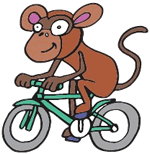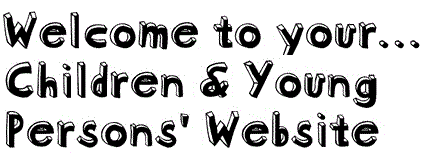
What about common problems?
Advice for most common problems:
- National Autistic Society
- Autism East Midlands
- NHS Choices
- Nottinghamshire Concerning Behaviour Pathway
- A Place to Call Our Own (APTCOO)
- Nottinghamshire Help Yourself
- IRIS (Information for parents of children with special educational needs)
- Integrated Children's Disability Service
- Small Steps 07966 528 940
You can also look at our ASD patient information leaflet.
The Library and Knowledge Service at King's Mill Hospital have a wide range of books and resources which can be loaned to patients and families. Search their catalogue by typing "child health collection" into the search box. Telephone 01623 622515 ext 4009 for more information.
Food
Young people with autism can have difficulties eating. This could be over or under eating, fixations with particular foods or ways of eating. It could also be due to sensory issues eg taste, texture, smell. It is important to keep trying new foods.
Sleep
Young people with autism commonly have problems with sleep. This has a number of causes including worries about sleep or being alone/in the dark, not understanding the routine of the day or differences in sleep patterns.
Your local health visitor, school nurse or children’s centre may be able to advise you further.
See our Sleep patient information leaflet for more information.
Behaviour
There are a number causes of behavioural difficulties for young people with autism. It is important to think about the triggers for the behaviour this may include:
- difficulties understanding other people’s actions and language;
- difficulties understanding how you should behave in a particular place or with particular people
- anxiety
- sensory issues
You can access support from local childrens centre, Child and Adolescent Mental Health Team, early help unit. For more information on behaviour see our patient information leaflet.
Sensory difficulties
Children and young people with Autism are often over or under sensitive to light, sound, touch, taste, smell and even movement.
It is important to think about what you like and don’t like as it may help you understand when you get stressed or worried. It is also useful to think about what makes you feel calmer and try and use these strategies in you daily life.
Unfortunately there are no sensory services available via the NHS in Nottinghamshire.
- Autism at Home
- The Sensory Library - Fountaindale Special School has a sensory library open all. Families can borrow equipment for free, after paying a small joining fee. Telephone: 01623 792671
- Falkirk: Making Sense of Sensory Bevhaviour
Social skills
It is important to practice your social skills to prepare you for the future. There are a number of activities you can take part in with other people, some of these are specifically for children with similar difficulties.
Fine Motor difficulties
Young people with autism often find coordination more difficult for example skills such as using a knife and fork, catching a ball and tying shoelaces.
Children who are at primary school may be able to access the Funfit programme at their school. You should ask your school teacher if you are able to do this at your school.
Our occupational therapy service recommends Box of Ideas
Toileting
Many children with Autism struggle to use the toilet for a number of reasons.
Please see our Toileting Patient Information leaflet.
Visual Aids and Social Stories
To help understand the world around you/your family some people find it useful to use visual aids – these are pictures which show you what you need to do – for example when you are getting ready for school, or what to expect in a new situation eg on holiday.
Some people use social stories which help them to understand how they should act in different social situations eg turn taking, catching the bus.
Mental Health difficulties
Some children and young people with Autism can also have difficulties with their emotional and mental health. This can include anxiety, depression, obsessional/compulsive behaviours, self harm or suicidal thoughts. It is important that you share these worries as help is available.
These problems should be discussed with your keyworker, and GP who may consider referral to the local Child and Adolescent Mental Health Service for either consultation or an appointment.
Parents, and young people aged 12-18 years can self refer to CAMHS – 0115 8542299 or see CAMHS website
The Mental Health and Growing Up factsheets on the Royal College of Psychiatrists website contain information on a wide range of subjects from anxiety to tantrums.
Please note that none of the information given here should replace discussion with your GP.
For more information see our emotions patient information leaflet.
School
Children and young people with autism may enjoy the routine and learning challenges at school, and flourish in this environment.
There are other children/young people with autism who have additional learning difficulties or delay.
Others find school hard because of: the school work; the other children; anxiety; the environment eg classrooms, noise or misunderstandings etc
Some children/young people do not have difficulties in primary school, but may struggle when they move to secondary school.
These problems can all impact of a child or young person’s ability to achieve.
If you are having problems, you should
1. Discuss them with your keyworker and with school
2. Contact your local parent partnership team for additional support
3. A small number of children/young people require additional support from their school or local authority. For more information see
- Nottinghamshire Concerning Behaviour Pathway website
- Nottinghamshire Special Educational Needs and Disabilities webpage
- Independent Parental Special Education Advice (IPSEA)
Adolescents/Transition to adult services
Adolescence can be a difficult time especially if you have Autism as well. You may require support around a number of different things including your emotional health, sexual health and relationships and transition to adult services.
Health for Teens - information for young people provided by the NHS
SExions
Central booking number: 01623 672260 SEXions is a confidential sexual health service for young people aged 13-19, and up to 24 for young people with disabilities.
Integrated children's disability service - transition support
For more information see out transitions patient information leaflet.
The websites mentioned above are for information purposes only and are not under the control of the Trust. As such, the Trust does not give any commitments or accept any liability to you in respect of the content provided by the third parties.


